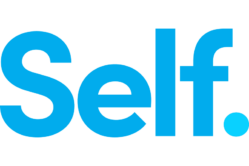If you currently own a small business, you probably know how much money you need to stay afloat.
Even businesses that boast huge profit margins may need to access a loan for additional cash flow from time to time.
It’s also common for businesses to need additional funds for capital improvements or expansion.
Fortunately, getting a business loan is not difficult if you have good credit and a solid business plan.
You can even qualify for a business loan if you need capital to start a business that doesn’t even exist yet, although you may wind up with a higher interest rate and less favorable terms.
Table of Contents
Basic Types of Small Business Loans
Traditional business loans still comprise a large percentage of business borrowing and offer a great starting point as we compare other products.
Traditional business loans include:
- Term Loans
- SBA Loans
- Lines of Credit
- Equipment Loans
Term Loans from banks and credit unions
Brick-and-mortar and online banks offer standard term business loans like home mortgages.
A business borrows a large sum — often $1 million or more — then repays the loan within the specified period, called a term.
Expect to put up some collateral, like business property, during the application process. Be ready to share exactly how you’ll spend the money and document how the loan will help your business grow.
- Where to get: Your favorite neighborhood bank or credit union; good online choices include: Street Shares, Credibility Capital, and Currency Capital.
These loans may be more difficult to qualify for as banks can only offer so many business loans and tend to have more strenuous qualification requirements.
But one of the benefits of a traditional loan from a bank or a credit union is the relationship aspect. You might not have a problem getting approved if you already have a relationship with a bank.
SBA Loans
Like mortgage loans, the federal government backs small business loans through the Small Business Administration.
SBA loans help businesses access large sums of money for capital investment or to buy real estate for their business.
As a federal guarantor, the SBA has strict guidelines borrowers must follow to receive funding. After you get through the red tape, your business can benefit from lower interest rates and terms as long as 25 years for business real estate transactions.
- Where to get: Your local bank or credit union can help if it’s authorized by the SBA and has experience issuing loans. Online: Check with SmartBiz or Live Oak.
Lines of Credit
A line of credit can help a business that needs cash flow but doesn’t have specific expansion plans.
Lines of credit work more like credit cards: they don’t require collateral and borrowers can access funds as needed rather than all at once.
These favorable features come with a cost: higher interest rates and ongoing maintenance fees.
Still, a business can save money with a line of credit by borrowing only what’s needed.
- Where to get: Again, your neighborhood bank should have options. Opt for the lowest interest rate and fee structure. Online, check out Kabbage or Street Shares.
Equipment Loans
Companies that rely on expensive equipment or advanced computer networks often finance these purchases with equipment loans.
You could use the equipment itself as collateral, keeping borrowing costs low.
Businesses should ensure the loan’s payoff term does not extend beyond the lifespan of the equipment.
When used properly, equipment loans can insulate your business from heavy infrastructure costs while still giving you access to the most up-to-date hardware to help your business grow.
- Where to get: OnDeck, Ascentium Capital, Currency
Other Lending Options for Businesses
Some businesses need more flexible options.
Here’s a quick list:
- Peer-to-Peer Loans
- Invoice Factoring
- Invoice Financing
- Credit Cards
- Merchant Cash Advance
Peer-to-Peer (P2P) Lending
Peer-to-peer lending bypasses the traditional role of banks. Your business would apply to a P2P site such as Funding Circle or Lending Club.
If approved, the loan would be funded by the site’s investors.
As a borrower, you’d still have to repay the loan on time, but you could also get a lower interest rate and access money more quickly.
- Leading providers: Lending Club, Funding Circle
Invoice Factoring
If your business has reached a rough patch, but you can see the relief on the horizon in the form of customer invoices coming due, invoice factoring can let you access those funds sooner.
An invoice factoring company can “buy” your unpaid invoices from you for a fee. Then, the company becomes responsible for collecting the invoices to repay your debt.
- Online options: Bluevine, Fundbox
Invoice Financing
Invoice financing works like invoice factoring, except you retain control of your unpaid invoices. You’d use the invoices coming due as collateral for a loan.
Then, you’d pay back the loan when you collect the invoices.
Many business owners prefer this method because their customers don’t know their invoices were used as collateral.
Invoice financing tends to be more expensive and complex than invoice factoring.
- Online options: Kabbage, Funding Circle, OnDeck Capital
Credit Cards
Sometimes a simple business credit card can provide your company’s financial flexibility.
As with a consumer credit card, look for lower interest rates and pay off your monthly balance if possible.
Merchant Cash Advances
If you’re a retailer or accept credit card payments, you could get a cash advance from your credit or debit card processor.
You’d repay the money little by little, giving your card processor a percentage of each credit or debit card transaction.
Some services also allow you to pay down your balance through bank drafts.
You can get almost instant cash using this method, but the fees and the extended payback can take a bite out of your cash flow for a long time.
Business Start-Up Loan Options
Besides peer-to-peer loans, the lending products above primarily serve existing business owners.
A start-up would have difficulty getting a term loan or even an SBA loan.
If you have an idea but need funding, consider options such as:
- Asking For Help
- Microloans
- Crowdfunding
- Personal Loans
- Savings
- Grants
Asking for Help
Do you have friends or family who would be interested in investing in your business idea?
You’d be surprised how much you can receive by being willing to ask.
Microloans
If you plan to start a business in an underdeveloped area, ask the Chamber of Commerce or your municipal government about microloans.
These small loans — usually ranging from a few thousand dollars up to $50,000 or so — may not get your idea fully operational, but they can help secure a lease or buy computers.
Since nonprofits administer these programs, expect great terms but a little red tape.
- How to get: Contact your local bank, credit union, or check with your local government to learn about programs. If you’re a veteran, you may be able to find veteran-specific micro-lending programs in your area.
Crowdfunding
Crowdfunding resembles P2P lending but without payback terms. Through equity crowdfunding from sites like Kickstarter, people can invest small amounts into your business.
In exchange, they’ll expect their investment to grow as your business grows.
Rewards crowdfunding offers a less formal approach: People can invest in your business in exchange for less-defined rewards such as free merchandise in the future.
If you seek either crowdfunding, sharing your vision and passion can compel more investors to help.
Personal Loans or Your Savings
If you believe in your idea enough to ante up your own money, you can become your own investor.
Likewise, you could borrow money through a personal convenience loan or a second mortgage and invest the funds in your business.
None of these ideas usually qualify as sound financial decisions, but you have the freedom to decide for yourself whether your business idea is worth taking the risk.
Be sure to consider all angles and challenges to your business before investing.
Grants
It’s usually a long shot, but nonprofits sometimes grant startup money to businesses if they believe in the business’s mission and vision.
You may have to write an essay to apply for a grant, but the work can pay off if you find the right foundation.
Best Small Business Loans
For this guide, we profiled an array of direct and peer-to-peer lenders that offer online small business loans.
We looked for business loans that offer low interest rates and fees, as well as ones with reasonable criteria to qualify.
Our top business lenders include:
- LendingClub
- OnDeck
- Kabbage
- Prosper
- FundingCircle
LendingClub: Best All-Around
LendingClub allows consumers to borrow up to $30,000 to fund their small business, and you can get your money in as little as five business days. Repayment terms are available between 1 and 5 years, and these loans come with fixed monthly payments and no prepayment penalties.
While your interest rate will depend on your creditworthiness and other factors, LendingClub business loans come with as low as 5.99% APRs. You can easily apply online and get multiple quotes in minutes.
Pros:
- Borrow up to $30,000 and repay for up to five years
- Your APR may be as low as 5.99%, depending on your creditworthiness
- Apply online and from the comfort of your home
Cons:
- The best APRs and loan terms only go to those with good or excellent credit
- While $30,000 is a lot of money, it may not be enough for everyone
- These loans come with an origination fee that varies from borrower to borrower
- You need to be in business for at least ten years and have at least $50,000 in annual sales to qualify
- You also need to own at least 20% of your business and have good credit
Prosper: Best for Businesses with Excellent Credit
Prosper is yet another peer-to-peer lender you can consider for your business loan. The big difference is that when you borrow from Prosper to fund your business, you take out the loan as an individual borrower.
Prosper offers interest rates and loan terms that depend on your creditworthiness and other factors.
Loan amounts are offered between $2,000 and $40,000, and you can repay your loan in 3 or 5 years. Typical APRs range from 6.95% to 35.99%, so your rate could be fairly low or radically high, depending on your financial qualifications.
To qualify for a business loan from Prosper, you typically need a credit score of 640 or higher. However, the best rates and terms go to those with scores over 710.
Pros:
- Rates can be very low for people with excellent credit
- You can borrow up to $40,000 and repay it for up to five years
- Apply online and get an answer in minutes
Cons:
- These loans come with an origination fee of up to 5% of the loan amount
- You may not qualify for an affordable rate if your credit isn’t very good
- Loan amounts aren’t as high as you get with some other lenders
OnDeck: Best Variety of Lending Options
OnDeck is a direct lender that offers business loans for various purposes. The company may not be that well known, but it boasts an A+ rating from the Better Business Bureau. They have also funded over $10 billion in business loans, so they know what they’re doing.
OnDeck lets you borrow up to $500 for your business with rates as low as 9.99% APR. You can also apply for a line of credit for up to $100,000 with APRs as low as 13.99%.
OnDeck business loans are also easy to research and apply for online, although your loan amount, APR, and repayment timeline will vary depending on your qualifications.
Pros:
- Borrow up to $500,000 to fund your business goals
- This company also offers a line of credit, which can be a better option if you’re unsure how much funding you need
- Rates can be as low as 9.99%
Cons:
- Some business lenders offer significantly lower interest rates to consumers with great credit
- You need a minimum credit score of 500 and $100,000 in annual sales to qualify
- You’ll have to pay an origination fee of 2.5%
Kabbage: Best for Big Loans
Kabbage is another direct lender that offers business loans to qualified entrepreneurs and business owners. This lender allows you to borrow up to $250,000 and repay it over 6 or 12 months.
They also feature an easy online application process that can yield an affirmative answer in less than ten minutes.
To apply for a business loan from Kabbage, you’ll need to access their online application page and enter information ranging from annual revenue to your business details.
Kabbage will analyze your business performance and decide if you are eligible for a loan.
Generally, you need a credit score of 560 or higher to qualify. You must also have been in business for at least one year and have at least $50,000 in annual revenue.
Pros:
- You can borrow up to $250,000, which is a lot more than some lenders offer
- Apply online from the comfort of your home
- Easier credit requirements than some lenders
Cons:
- Interest rates run between 24.99% APR to 99% APR, which makes Kabbage less competitive than many other lenders
- With such high interest rates, borrowing from Kabbage is going to be expensive
- You have to pay your loan off quickly, usually in 6 to 12 months
- Origination fees can be up to 10% of your loan amount
FundingCircle: Best for Early Repayment
FundingCircle is a peer-to-peer lender that has chosen to offer loans in the small business space. Not only can you borrow up to $500,000, but rates are as low as 4.99% for borrowers with great credit and ample business income.
You can repay your loan with terms that span from 6 months to 5 years, and you can apply online and get an answer in a matter of minutes.
FundingCircle loans do charge an origination fee between 3.49% and 7.99%, so that’s important to keep in mind. Their highest interest rate is also 27.79%, which is strikingly expensive but not as high as some other options on this list.
You can easily do it on their website if you want to apply for a loan from Funding Circle. All you have to do is enter your personal information, business information, and your income to get started.
Pros:
- No prepayment penalties
- Interest rates as low as 4.99% for those who qualify
- Apply online and get an answer the same day
Cons:
- Their origination fees can work out to up to 7.99% of your loan amount
- Interest rates can be as high as 27.99%
- Minimum loan amount is $25,000, which might be too much for some business owners
The Bottom Line
If you’re in the market for a business loan, it’s crucial to compare your options to find the best deal.
You may find that some lenders work better than others for your needs, but you’ll never know unless you check.
Start searching for business loans today, and don’t give up until you find the ideal business loan to achieve your goals.



About the comments on this site:
These responses are not provided or commissioned by the bank advertiser. Responses have not been reviewed, approved or otherwise endorsed by the bank advertiser. It is not the bank advertiser’s responsibility to ensure all posts and/or questions are answered.